Art and Objecthood: Fried against Fried

It is just this split that Fried introduces into the world, and after which there is no going back because no matter how far back we go there is always the same doubling (this is part of the meaning of the Caravaggio book, which sees the problematic of absorption in a period notionally before modernism) and no outside (because even indifference is now only an attempt to overcome a prior scepticism, that is, an effort at absorption). All this is exactly that willed indifference that Fried evokes through Diderot in Absorption and Theatricality, in which painting must seek the “superior fiction” of not being beheld, just as the actor must ignore the audience in front of them (and this effect of will applies in Diderot—this is the important point—whether there is an actual audience or not).
A Marginal Note on “Art and Objecthood”

“Art and Objecthood” reminds us that the past is a foreign country, as the (now) quite obscure British author L.P. Hartley was the first to say. It belongs to an era in which Artforum was full of writing about art, and where the question of whether what was being discussed was worth considering as—or, as Fried’s essay asks, even was—art, was thought to be important. There could be no hint in the essay, or of any thing or of the artists to which it refers, of the anthropological haze moist with sanctimony that has since descended, obscuring and diluting questions having to do with aesthetic judgment while seeking to wash them away altogether.
The Reality Contract: Rope, Birdman, and the Economy of the Single-Shot Film
Perhaps not surprisingly, the history of Hollywood production mirrors the history of venture capital in the United States, as each new film presents an idiosyncratic set of risk factors, and each new production or distribution technology distorts return forecasts for a new generation of film speculators.
Issue #21: “Art and Objecthood” at Fifty
For fifty years, Michael Fried’s “Art and Objecthood” has set the terms for the discussion of minimalism, or as he prefers to call it, literalism. More than just a commentary on a controversial set of works that challenged and largely eclipsed high modernism, “Art and Objecthood” has itself remained the subject of intense debate since it was first published in Artforum. It raises questions about the nature of art, of experience, of criticism, and of the relation of history to all of the above. For some of us, partisans as well as opponents of Fried’s views, “Art and Objecthood” is inevitable–a challenge that cannot be avoided. The essays and appreciations gathered in this issue offer variety. They are by “Art and Objecthood”‘s admirers, if not partisans, and suggest the breadth of ways its challenge can be felt and met. Fried’s battle with minimalism may be a topic for art historical study, but we are not finished reading “Art and Objecthood” yet. Our next issue will continue the discussion.
The Temporal Fried
From 1967 to the present, no other writer has so systematically thought through the history and effects of artistic temporality. This accomplishment necessarily binds together his art criticism and his art history, and it allows us to see another layer of significance to the legacy of “Art and Objecthood” fifty years after its publication.
Proven Objectivity
Hegel believed that it was incumbent on anything that wanted to be taken seriously to “prove its object,” which is to say, to show itself to be the kind of thing that it in fact is. I am enough of a Hegelian (and a modernist) to feel that art must still “prove its object,” each work somehow making visible a claim for its existence as a work of art rather than some other sort of thing. I take it that what Fried has wanted to show us, not only in his early writings but throughout his art-historical career, is that such “objectivity” is at consequential odds with mere “objecthood,” and that both art and art history need to be clear about those stakes, at least if they hope to be taken seriously.
Footnote Number 6: Art and Objectness

In footnote number 6, however, he directly addresses Greenberg’s axiom, and the specific condition of painting. There is a sense in it of an intuitive recognition that for the enterprise of modern painting, Greenberg had the cart before the horse. We know the horse is in front of the cart because the pulling function of the horse is attached to the steering mechanism of the carriage. Greenberg, in this instance, like Joshua Reynolds, seemed more concerned with the status of the carriage, that is, painting as an Art, than with its use-function. What we can glean from Fried is that flatness and the delimitation of flatness is a functional mechanism of the art of painting, and was, at the time, steering the direction that painting was going in.
Michael Fried in the Studio
What am I looking or hoping for from a studio visit? A clear-eyed view of the sculpture that tells me the piece is not working or is working. Then, with luck, an explanation or theory about how it is doing what it is doing. OK, but there are visitors and there are visitors. As is true of any of Michael’s criticism, his understanding of how a work of art gets made comes first.
“Art and Objecthood” Word by Word

No one likes to be taken seriously when they are speaking lightly. And nobody likes to be told they are not serious when they believe they are. But the encounters staged around the various remarks quoted in “Art and Objecthood” are not exactly either of these: the question of seriousness is not being raised by Fried in the face of what the artists have said but is presented as already there in what they say—and as unheard there by them.
Why Architecture Matters as Art as Never Before: Le Corbusier, Tony Smith and the Problem of Use
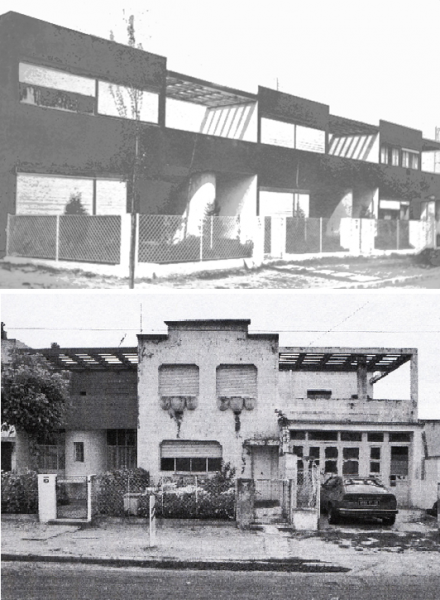
The real problem here is not the gap between intent and reaction, but rather with the simple fact that whether or not a building is actually used in the way the architect wishes, it is always made for a user. One could of course build structures exclusively for friends or for oneself but that feels more like an exemplification of the problem than a solution to it. There is no real possibility of fictionally or on any other level of not acknowledging the beholder/user, they are present at the conception and the realization of the work.
